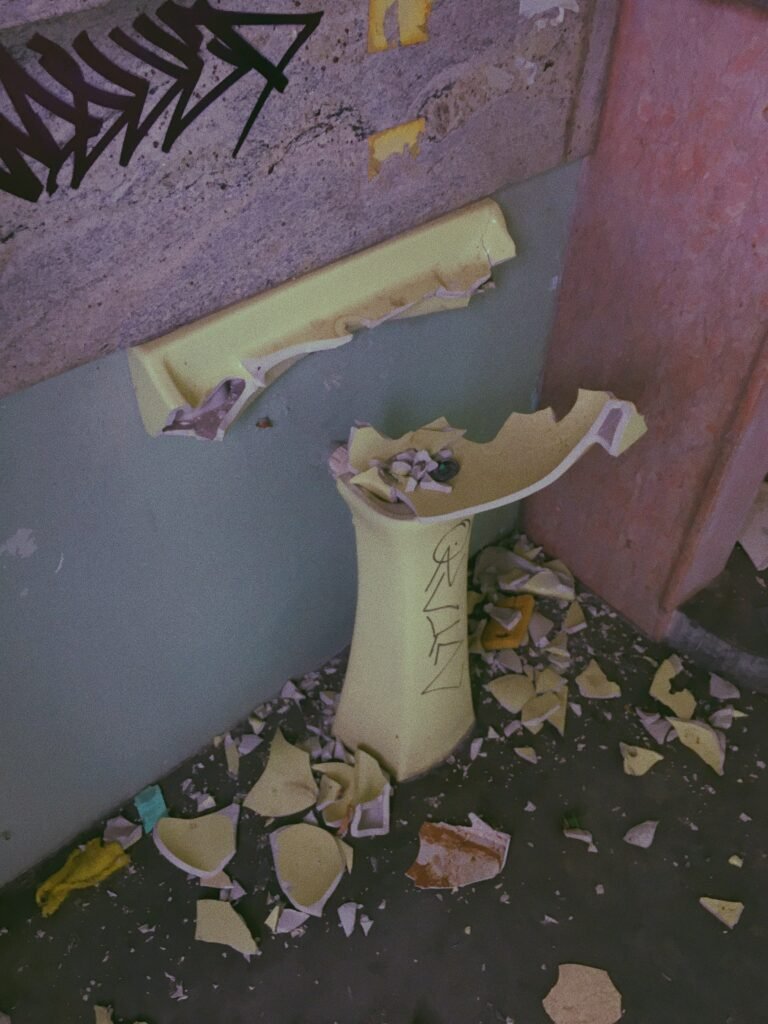If you’ve ever suffered from kidney stones, you know just how excruciating the pain can be. But did you know that a simple dietary change could help prevent future episodes? In this article, we’ll explore the link between oxalates and kidney stone prevention. By understanding how oxalates contribute to stone formation and making smart choices about what you eat, you can take proactive steps to reduce your risk and live a stone-free life. So grab a cup of tea (but hold the spinach!) and let’s dive into this fascinating connection.
What are Oxalates?
Definition of Oxalates
Oxalates are naturally occurring compounds found in many plant-based foods. They are a type of antinutrient, which means that they can interfere with the absorption of certain minerals, particularly calcium. Oxalates are often present in the form of oxalic acid, and they can form salts known as oxalates. These oxalates can combine with calcium in the body, leading to the formation of kidney stones.
Sources of Oxalates in the Diet
Oxalates can be found in a variety of foods, both plant-based and animal-based. Some common sources of oxalates include spinach, rhubarb, beets, Swiss chard, cocoa, tea, nuts, soy products, and certain berries. It’s important to note that oxalate content can vary in different food items, so it’s essential to be aware of the oxalate levels in the foods you consume.
Formation of Kidney Stones
Types of Kidney Stones
Kidney stones are hard deposits that form in the kidneys. There are several types of kidney stones, including calcium stones, uric acid stones, cystine stones, and struvite stones. Calcium stones are the most common type and can be further classified into two subtypes: calcium oxalate stones and calcium phosphate stones. Calcium oxalate stones are often associated with high oxalate levels in the diet.
Role of Oxalates in Kidney Stone Formation
Oxalates play a significant role in the formation of kidney stones, particularly calcium oxalate stones. When there is an excess of oxalates in the body, they can combine with calcium to form calcium oxalate crystals. These crystals can accumulate and grow, eventually leading to the formation of kidney stones. Additionally, high levels of oxalates can interfere with the absorption of calcium and other minerals, further contributing to stone formation.

This image is property of images.unsplash.com.
Oxalates and Kidney Stone Prevention
Dietary Changes
Making dietary changes is crucial for preventing kidney stones related to oxalates. It is recommended to limit the intake of high oxalate foods and focus on a balanced diet. Including a variety of fruits, vegetables, whole grains, and lean proteins can help ensure a nutrient-rich diet while reducing the risk of oxalate-related kidney stones.
Fluid Intake
Adequate fluid intake is essential for kidney stone prevention. Drinking plenty of water, preferably 8-10 glasses per day, can help dilute the concentration of oxalates and other substances in the urine. This dilution makes it less likely for oxalate crystals to form and develop into kidney stones. Staying hydrated is a simple yet effective strategy for reducing the risk of stone formation.
Calcium Consumption
Contrary to popular belief, consuming enough calcium is important for kidney stone prevention. When calcium is consumed alongside oxalate-rich foods, it can bind with the oxalates and inhibit their absorption. This reduces the available oxalates in the body, decreasing the likelihood of crystal formation. Including calcium-rich foods, such as dairy products or leafy greens, in your diet can be beneficial for preventing oxalate-related kidney stones.
Reducing Oxalate Absorption
There are strategies to reduce the absorption of oxalates from the foods you consume. Pairing high oxalate foods with calcium-rich foods, like cheese or yogurt, can help bind the oxalates and limit their absorption. Additionally, cooking or steaming oxalate-containing vegetables can reduce their oxalate content. Avoiding excessive Vitamin C supplementation is also recommended, as it can increase the production of oxalates in the body.
Effect of Oxalates on Kidney Health
Oxalate-Induced Nephrotoxicity
High levels of oxalates in the body can lead to a condition known as oxalate-induced nephrotoxicity. This condition occurs when the kidneys are overwhelmed with oxalate crystallization, leading to inflammation and damage to the kidney tissues. Oxalate-induced nephrotoxicity can impair kidney function and increase the risk of kidney stone formation.
Chronic Kidney Disease
Chronic kidney disease (CKD) is a progressive condition that affects the kidneys’ ability to filter waste products from the blood effectively. In individuals with CKD, there is a higher risk of developing kidney stones, including those related to oxalates. It is important for individuals with CKD to manage their oxalate intake and follow a kidney-friendly diet to reduce the risk of kidney stone formation and further damage to the kidneys.
Oxalate Crystal Deposition
Excessive oxalates in the body can lead to the deposition of oxalate crystals in various tissues, including the kidneys. These crystals can cause inflammation and damage to the tissues, contributing to kidney stone formation and potential complications. Managing oxalate levels in the body through dietary changes and other strategies is essential for preventing the deposition of oxalate crystals and protecting kidney health.

This image is property of images.unsplash.com.
Medical Conditions and Oxalate Metabolism
Hyperoxaluria
Hyperoxaluria is a medical condition characterized by abnormally high levels of oxalates in the urine. It can be caused by either overproduction or impaired excretion of oxalates. Individuals with hyperoxaluria have an increased risk of developing kidney stones, as the excessive oxalates can combine with calcium and form crystals. Managing oxalate intake is crucial for individuals with hyperoxaluria to prevent stone formation.
Primary Hyperoxaluria
Primary hyperoxaluria is a rare genetic disorder that leads to the overproduction of oxalates in the body. This condition can cause severe kidney damage and recurrent kidney stone formation from an early age. Managing primary hyperoxaluria involves strict dietary oxalate restriction, increased fluid intake, and sometimes medical interventions to reduce the production or absorption of oxalates.
Secondary Hyperoxaluria
Secondary hyperoxaluria occurs as a result of an underlying medical condition or dietary factors that increase oxalate levels in the body. Conditions such as inflammatory bowel disease, short bowel syndrome, or excessive Vitamin C supplementation can contribute to secondary hyperoxaluria. Treating the underlying cause and making appropriate dietary modifications are essential for managing secondary hyperoxaluria and reducing the risk of kidney stone formation.
Oxalobacter Formigenes
Oxalobacter formigenes is a bacteria found naturally in the gut that plays a role in oxalate metabolism. This bacteria is capable of breaking down oxalates and reducing their absorption in the body. Individuals with low levels or an absence of Oxalobacter formigenes may have a higher risk of oxalate-related kidney stone formation. Probiotic supplements containing Oxalobacter formigenes may be considered for individuals with recurrent kidney stones.
Factors Affecting Oxalate Absorption
Gut Microbiota
The gut microbiota, the collection of microorganisms in the digestive tract, can influence oxalate metabolism and absorption. Certain bacteria, such as Oxalobacter formigenes, can break down oxalates, while others may contribute to increased oxalate levels. Maintaining a healthy and diverse gut microbiota through a balanced diet and probiotic supplementation can help regulate oxalate absorption and metabolism.
Influence of Dietary Factors
The composition of your diet can impact oxalate absorption. Consuming foods high in calcium and fiber can help bind with oxalates and prevent their absorption. On the other hand, consuming foods high in fat or sugar can increase the absorption of oxalates. It is important to maintain a balanced and nutritious diet to optimize the absorption and metabolism of oxalates in the body.
Metabolic Factors
Individuals with certain underlying metabolic conditions may have impaired oxalate metabolism. For example, individuals with certain types of malabsorption disorders or gastrointestinal surgeries may have difficulties absorbing or eliminating oxalates effectively. These metabolic factors can increase the risk of oxalate-related kidney stone formation. Consulting with a healthcare professional is essential for managing these conditions and reducing the risk of stone formation.

This image is property of images.unsplash.com.
Oxalate Containing Foods
High Oxalate Foods
High oxalate foods include spinach, rhubarb, beets, Swiss chard, cocoa, tea, nuts, and certain berries. These foods contain significant levels of oxalates and should be consumed in moderation, especially for individuals at risk of kidney stone formation. It is important to note that cooking or processing these foods can help reduce their oxalate content.
Moderate Oxalate Foods
Moderate oxalate foods include potatoes, grapes, tomatoes, celery, and legumes. These foods contain moderate levels of oxalates and can be included in a balanced diet. It’s important to be aware of portion sizes and overall oxalate intake, particularly for individuals with a history of kidney stones.
Low Oxalate Foods
Low oxalate foods include most fruits, such as bananas and apples, as well as most grains and animal-based products. These foods have minimal oxalate content and are generally safe to consume without significant concerns for kidney stone formation. However, it’s important to maintain an overall balanced diet that includes a variety of food groups for optimal health.
Dietary Strategies for Oxalate Reduction
Oxalate Content in Foods
Being aware of the oxalate content in different foods can help guide dietary choices. Keeping a record of the oxalate levels in the foods you consume can assist in meal planning and portion control. There are resources available that provide detailed information on the oxalate content of various foods for reference.
Cooking and Food Processing
Certain cooking techniques and food processing methods can help reduce oxalate levels in foods. Boiling oxalate-containing vegetables in water and discarding the cooking water can significantly reduce their oxalate content. Similarly, soaking and fermenting legumes can help decrease their oxalate levels. It’s important to note that these techniques may also affect the nutritional composition of the foods, so finding a balance is essential.
Combining Foods
Pairing high oxalate foods with calcium-rich foods can help reduce oxalate absorption. Calcium can bind with oxalate in the digestive tract and inhibit its absorption into the bloodstream. For example, adding cheese or yogurt to a spinach salad can help reduce the availability of oxalates. Combining foods strategically can be an effective way to manage oxalate levels while still enjoying a varied diet.
Avoiding Oxalate-Rich Foods
For individuals at high risk of kidney stones or with underlying medical conditions, avoiding or limiting oxalate-rich foods may be necessary. This may involve avoiding high oxalate foods altogether or consuming them only in small quantities. Working with a healthcare professional or registered dietitian can help determine the appropriate level of oxalate restriction based on individual needs and health concerns.
Fluid Intake and Kidney Stone Prevention
Importance of Hydration
Maintaining adequate hydration is crucial for kidney stone prevention. Sufficient fluid intake helps dilute the concentration of substances, including oxalates, in the urine. This dilution makes it less likely for crystals to form and develop into kidney stones. Drinking enough fluids also supports proper kidney function and overall urinary tract health.
Recommended Fluid Intake
The recommended fluid intake for kidney stone prevention is typically around 8-10 glasses of water per day. However, individual fluid needs can vary based on factors such as activity level, climate, and overall health. It’s important to listen to your body and drink when you’re thirsty. Additionally, healthcare professionals may provide personalized fluid intake recommendations based on individual circumstances.
Types of Fluids to Consume
While water is the best choice for hydration, other fluids can contribute to overall fluid intake as well. Beverages such as herbal teas, low-sugar fruit juices, and clear broths can also help meet fluid needs. However, it’s important to be mindful of the sugar content and overall nutritional composition of these beverages. Opting for low-sugar and nutrient-rich fluids is ideal for kidney stone prevention.
Calcium Consumption and Oxalate Binding
Role of Calcium in Kidney Stone Prevention
Contrary to common misconceptions, consuming adequate amounts of calcium can actually help prevent kidney stone formation. Calcium can bind with oxalates in the digestive tract and prevent their absorption into the bloodstream. Without sufficient calcium, the oxalates may be absorbed and contribute to stone formation. It’s important to aim for the recommended daily intake of calcium to support overall bone health and kidney stone prevention.
Calcium-Rich Foods and Supplements
Including calcium-rich foods in your diet can help meet your daily calcium needs. Dairy products such as milk, yogurt, and cheese are excellent sources of calcium. Other options include leafy greens, fortified plant-based milks, and canned fish with bones. If calcium intake from the diet alone is insufficient, healthcare professionals may recommend calcium supplements to ensure an adequate intake.
In conclusion, oxalates play a significant role in kidney stone formation and kidney health. By understanding the sources of oxalates in the diet, making appropriate dietary changes, and implementing strategies to reduce oxalate absorption, individuals can reduce their risk of kidney stone formation. Additionally, considering underlying medical conditions, gut microbiota, and metabolic factors can further guide preventative measures. With the right knowledge and proactive approach, individuals can promote kidney health and reduce the risk of complications associated with oxalates.

